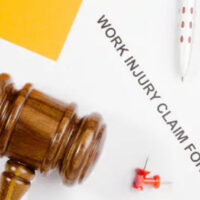Do I Need to Prove Fault in a Maryland Workers’ Compensation Claim?

After a workplace accident that results in an injury, getting the medical care you need and compensation for missed work is extremely important. For most injured workers, obtaining compensation will require seeking workers’ compensation benefits. Yet for many injured workers, this process can be confusing. Indeed, many injured workers are unsure about the steps they must take to obtain compensation, or the type of evidence they must provide. Many injured workers want to know: do I need to prove fault to obtain workers’ compensation benefits? In short, the answer is no, but you will need to provide details about your injury and the accident. A Maryland workers’ compensation lawyer can tell you more.
Workers’ Compensation as a No-Fault Exclusive Remedy
Under Maryland law, workers’ compensation — like in other states — is an exclusive remedy for most workplace injuries. What does this mean?
As an exclusive remedy, workers’ compensation does not permit an injured employee to file a negligence lawsuit. Instead, an injured employee can only (exclusively) obtain workers’ compensation benefits, but the trade-off is that the workers’ compensation system is also a no-fault remedy. To be clear, there is no need to prove fault to receive benefits, and even a worker’s own fault will not prevent them from obtaining benefits.
Employer Cannot Use Employee’s Fault as a Defense
Given that workers’ compensation is an exclusive no-fault remedy, an employer cannot use the employee’s own fault as a defense against providing coverage. Maryland law is clear that employers cannot allege that an employee assumed the risk of injury, or was contributorily negligent, in order to avoid paying benefits.
Fault is Relevant in Third-Party Work Injury Lawsuits
To be clear, workers’ compensation law in Maryland does not permit an injured employee to file a lawsuit against an employer or a co-worker to seek compensation for an injury that arose out of the employer’s or co-worker’s negligence. As we discussed above, it does not matter if an employer was at fault due to negligence — the employee cannot sue since workers’ compensation is the exclusive remedy. However, when a third party causes a workplace injury — even through a negligent act or omission — then the injured worker may be able to file a third-party lawsuit.
In this type of third-party lawsuit, it will be necessary to prove fault. The necessary evidence to prove fault will depend on the facts of the case and how the injury occurred. For example, proving fault in a work injury that resulted from a motorist’s negligence will require different evidence than proving a manufacturer is liable for harm due to a manufacturing defect in a piece of workplace equipment.
Contact a Maryland Workers’ Compensation Attorney
After any workplace injury, it is important to seek legal advice about seeking workers’ compensation benefits, as well as your potential eligibility for filing a third-party claim. One of our experienced Maryland workers’ compensation attorneys at the Law Offices of Steinhardt, Siskind and Lieberman, LLC can talk with you today to learn more about the circumstances of your workplace injury and to discuss filing a claim for compensation.
Source:
law.justia.com/codes/maryland/labor-and-employment/title-9/subtitle-5/section-9-509/


